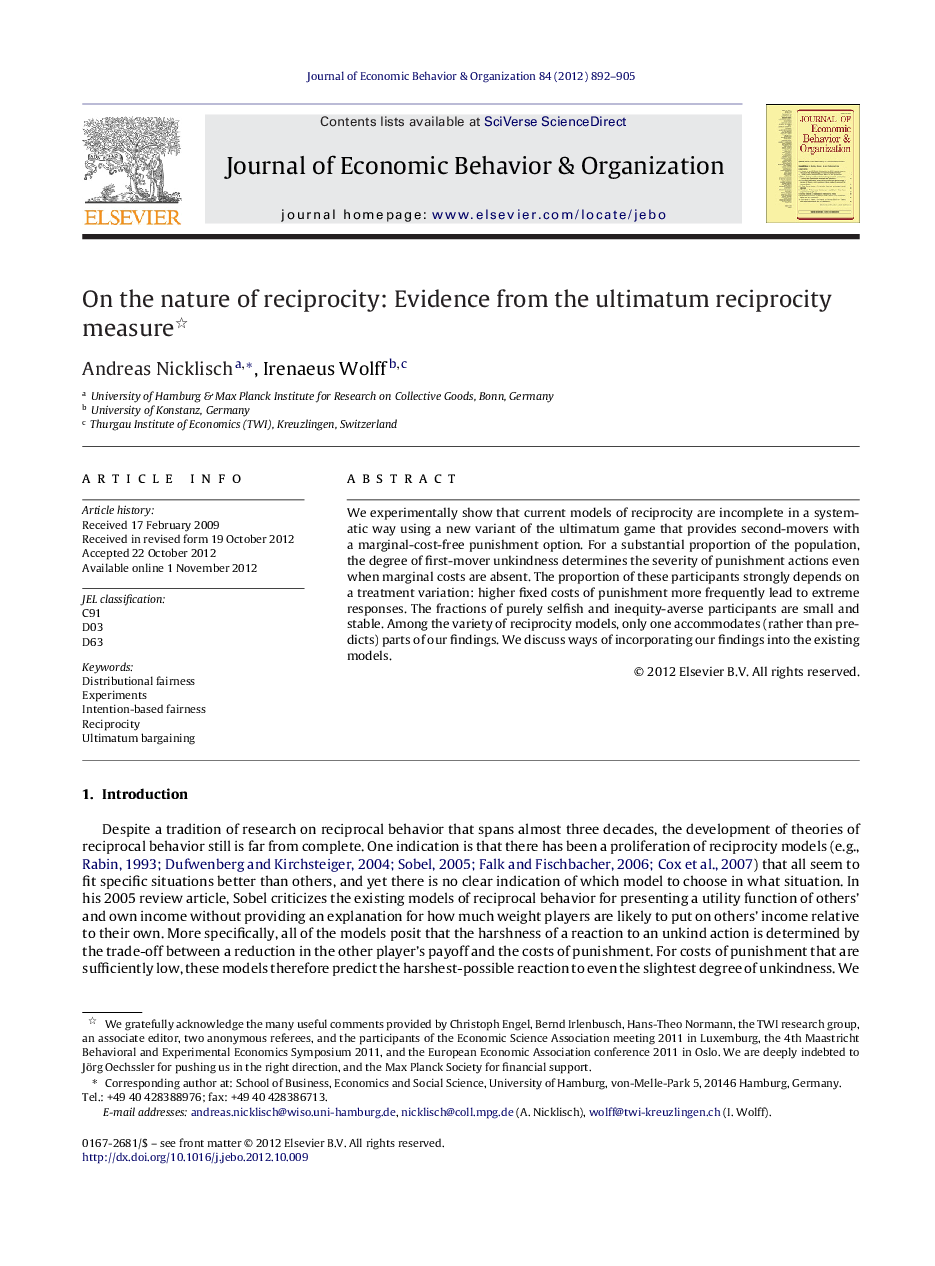| Article ID | Journal | Published Year | Pages | File Type |
|---|---|---|---|---|
| 883844 | Journal of Economic Behavior & Organization | 2012 | 14 Pages |
We experimentally show that current models of reciprocity are incomplete in a systematic way using a new variant of the ultimatum game that provides second-movers with a marginal-cost-free punishment option. For a substantial proportion of the population, the degree of first-mover unkindness determines the severity of punishment actions even when marginal costs are absent. The proportion of these participants strongly depends on a treatment variation: higher fixed costs of punishment more frequently lead to extreme responses. The fractions of purely selfish and inequity-averse participants are small and stable. Among the variety of reciprocity models, only one accommodates (rather than predicts) parts of our findings. We discuss ways of incorporating our findings into the existing models.
► We introduce a new game that provides a sharp test for reciprocity models. ► ‘Conventional’ models of social behavior account for only 41–65% of the data. ► 26–43% belong to a new type that can be accommodated by Cox et al. (2008). ► We find what looks like a treatment-induced shift in the classification of types. ► We characterize the new type and discuss modifications of existing models.
